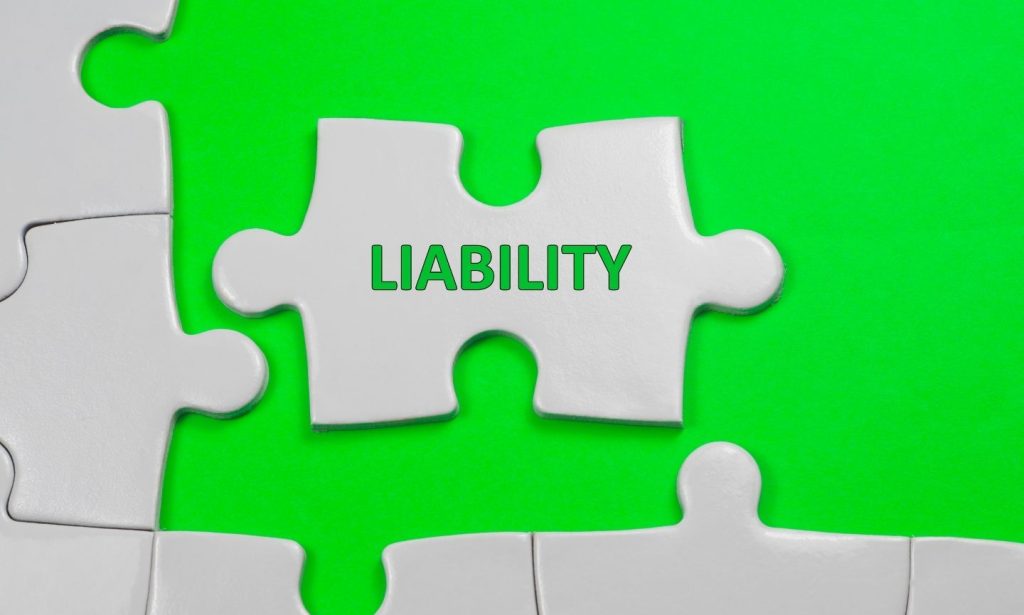When dealing with insurance policies, one of the most crucial aspects that can significantly impact your coverage is the concept of Defense Outside the Limits. This term might sound a bit confusing at first, but once you grasp its meaning, you’ll understand why it can make all the difference in a liability scenario. Let’s take a deep dive into what defense outside the limits is, how it compares to other options, and why it could be essential for your financial security.
The Concept of Claims Expenses Outside the Limit of Liability (CEOL)

Insurance policies are often full of complex terms and conditions. One such critical concept is Claims Expenses Outside the Limit of Liability (CEOL). It’s not just a matter of whether or not you’re covered, but about how much of that coverage is actually available to protect you when the need arises.
What Exactly Is CEOL?
- Claims Expenses Outside the Limit: CEOL is an important feature that ensures your defense costs do not reduce the limit available for paying settlements or judgments. Think about it this way—when you face a liability claim, you have two main categories of expenses: the actual damages from the claim and the legal expenses for defending it. With CEOL, your legal expenses are covered separately, without eating into the amount reserved for settling the claim itself.
- Why It Matters: Imagine you have a $1 million liability policy. If your defense costs rack up to $300,000, that would leave only $700,000 to cover a settlement if you do not have CEOL. With Defense Outside the Limits, however, the legal costs are paid separately, allowing the full $1 million to be used solely for damages and settlements.
Defense Within Limits (DWL) vs. Defense Outside Limits (DOL)
When selecting an insurance policy, you’ll come across two key terms: Defense Within Limits (DWL) and Defense Outside Limits (DOL). These terms define how the costs of defending a claim will be handled in relation to your coverage limit, and the choice between them can significantly affect your overall coverage.
Key Differences and Implications
- DWL: In a Defense Within Limits policy, the defense costs are taken from the same pool of funds used to cover the claim itself. This means that every dollar spent on legal representation is a dollar less available to pay for any settlement or judgment. For example, if you have a $1 million policy limit, and your defense costs amount to $400,000, you would only have $600,000 left for any potential settlement or award.
- DOL: Conversely, in a Defense Outside the Limits (DOL) policy, the defense costs are covered separately from the policy limits. This means that the coverage limit remains intact for settlement purposes, and you do not need to worry about legal expenses eating into your available funds for damages. This is particularly beneficial in situations where legal costs are high, ensuring that you have the maximum available to resolve the claim itself.
Impact on Coverage
- Settlements and Judgments: One of the biggest advantages of Defense Outside the Limits is that it preserves the full coverage for any settlements or judgments against you. This can make a significant difference if the legal process drags on and defense costs pile up.
- Liability Scenarios: Consider a scenario involving a professional liability policy for a medical professional. If a patient sues for bodily injury, the defense costs could easily exceed hundreds of thousands of dollars. With DOL, the available funds for a potential settlement remain unaffected, providing much-needed peace of mind.
- Policyholder Protection: DOL also provides a level of protection for policyholders against unexpected legal costs that could otherwise severely limit the coverage available for settling a claim. This can be particularly important in cases involving employment practices liability, where both legal and settlement costs tend to be high.
What is Defense Outside the Limits: Cost Considerations
- Premium Differences: Insurance policies with Defense Outside the Limits generally come with higher premiums than those with Defense Within Limits. This is because the insurer is taking on additional risk by covering legal expenses separately from the policy limits. However, for many, the extra cost is worth it for the added protection.
- Self-Insured Retentions: Another cost consideration is self-insured retention (SIR). In many cases, policies with DOL may have a higher SIR, meaning that the insured must pay a certain amount out of pocket before the insurance kicks in. This can be seen as a trade-off for the more comprehensive coverage provided by DOL.
Historical Perspectives on Defense Policies
Evolution of Liability Coverage

- In the past, most insurance policies were written with Defense Within Limits as the standard. This meant that policyholders often found themselves in situations where legal costs drained the available coverage for settlements, leaving them exposed to significant financial risk.
- Over time, the insurance industry recognized the need for more policyholder-friendly options, leading to the introduction of Defense Outside the Limits. This change was driven by demand from high-risk industries, such as healthcare and legal services, where the cost of defense could easily exceed the damages being claimed.
- Today, Defense Outside the Limits is often offered as an option for policyholders looking for more comprehensive protection, particularly in sectors where the risk of litigation is high.
Legal Framework in Different Jurisdictions
Nevada
- In Nevada, the legal framework around insurance policies tends to favor policyholders, particularly when it comes to liability coverage. The state has specific regulations that ensure policyholders are not left without adequate coverage due to high defense costs, making Defense Outside the Limits a popular choice.
Quebec
- Quebec operates under a civil law system, which is different from the common law used in most of North America. The insurance regulations in Quebec emphasize the protection of policyholders, ensuring that defense costs do not erode the coverage available for settlements. This makes DOL an attractive option for many businesses and professionals in Quebec.
Louisiana
- In Louisiana, which also follows a civil law tradition, the state’s insurance laws are designed to provide broad protection to policyholders. This includes support for policies with Defense Outside the Limits, ensuring that the full coverage limit is available for damages, regardless of the defense costs.
New Mexico
- New Mexico follows a mixed approach, with both Defense Within Limits and Defense Outside the Limits policies being available. The choice between these options often depends on the specific needs of the policyholder and the level of risk they are willing to assume. The state’s regulations ensure that both types of coverage are clearly defined, allowing policyholders to make informed decisions.
Selecting Coverage Options
Rationale for Choosing Defense Outside Limits

- Maximize Settlement Funds: One of the primary reasons to choose Defense Outside the Limits is to maximize the funds available for settlements. In cases where legal costs are high, having DOL ensures that you are not left with insufficient coverage for a potential settlement.
- Risk Reduction: Businesses in high-risk industries, such as healthcare, legal services, and construction, often opt for DOL to reduce the risk of being under-covered in the event of a major claim. The higher premiums associated with DOL are often seen as a worthwhile investment for the additional peace of mind.
- Avoiding Gaps in Coverage: With DOL, you can avoid situations where defense costs erode your coverage, leaving you exposed to significant financial liability. This is particularly important in industries where the cost of defending a claim can be substantial.
Implications of Defense Within Limits on Liability Coverage
- Limited Payout Potential: One of the biggest drawbacks of Defense Within Limits is that it limits the potential payout for a claim. Every dollar spent on defense reduces the amount available for a settlement or judgment, which can leave policyholders vulnerable in high-cost litigation.
- Financial Planning: For policyholders with limited budgets, DWL may be an attractive option due to its lower premium costs. However, this comes with increased risk, as the available coverage for a settlement will be reduced by the cost of defense. Policyholders must carefully weigh the cost savings against the potential financial exposure.
- Higher Out-of-Pocket Costs: In some cases, policyholders with DWL may find themselves facing significant out-of-pocket costs if the defense expenses exhaust the policy limits, leaving them with no coverage for the actual settlement.
Roles of Professionals in Liability Claims
Insurance Adjusters
- Role: Insurance adjusters are responsible for evaluating claims to determine coverage and managing the overall cost of the claim. This includes assessing whether the defense costs should be covered within the policy limit or outside of it.
- Impact on Defense Costs: The adjuster’s role is critical in determining how defense costs are allocated and ensuring that the insurance policy is applied correctly to protect the policyholder.
Attorneys
- Role: Attorneys play a key role in defending liability claims, and their fees can quickly add up, particularly in complex cases. In a Defense Outside the Limits scenario, these costs are covered separately, allowing the attorney to focus on providing the best possible defense without worrying about exhausting the policy limit.
- Costs Involved: Legal costs can include attorney fees, investigative expenses, and the cost of hiring expert witnesses. With DOL, these expenses do not reduce the coverage available for settlements, providing greater flexibility in mounting a strong defense.
Claims Representatives
- Role: Claims representatives act as intermediaries between the policyholder, the attorney, and the insurance carrier. Their role is to manage the claim efficiently and ensure that the costs are kept under control, while also ensuring that the policyholder’s interests are protected.
Understanding Policy Types
Occurrence Policies
- Definition: An occurrence policy provides coverage for claims arising from incidents that occur during the policy period, regardless of when the claim is made. This type of policy is often preferred by policyholders who want certainty that they will be covered for any incidents that occur while the policy is in effect.
- Advantages: One of the key advantages of occurrence policies is that they provide coverage without regard to when a claim is made, as long as the incident occurred during the policy term. This provides a level of certainty that is not always available with other types of policies.
Claims-Made Policies
- Definition: A claims-made policy provides coverage only for claims that are made during the active policy period. This type of policy requires that both the incident and the claim occur while the policy is in effect, which can create challenges for policyholders if a claim is made after the policy has expired.
- Extended Reporting Period (Tail Coverage): To address this issue, many claims-made policies offer an extended reporting period, also known as tail coverage, which allows policyholders to report claims that arise after the policy has expired. This can provide valuable protection, particularly in industries where claims may arise long after the incident occurred.
Related Insurance Definitions
Excess Policies
- Definition: An excess policy provides additional coverage above the primary policy limits, kicking in once the limits of liability on the primary policy have been exhausted. Excess policies can be a valuable tool for policyholders who want to increase their overall coverage without purchasing an entirely new policy.
- Impact on Defense Costs: Excess policies may also include provisions for Defense Outside the Limits, providing additional protection for policyholders facing large claims.
Umbrella Policies
- Definition: An umbrella policy provides additional coverage above the limits of other liability policies, covering gaps or instances when other policies have reached their limits for settlement. Umbrella policies are often used by businesses and individuals who want an extra layer of protection against large liability claims.
Engaging with Insurance Professionals
Strategies for Effective Risk Management
- Review Policy Limits Regularly: It’s important to review your policy limits on a regular basis to ensure that your coverage is adequate for your current level of risk. This includes evaluating whether you need Defense Outside the Limits or if Defense Within Limits is sufficient.
- Ask Questions About Coverage: When discussing your policy with an insurance professional, be sure to ask questions about how defense costs are handled. Some key questions include:
- Does the policy include defense outside the limits?
- What impact will choosing DOL have on my premium costs?
- How does the policy handle legal expenses if they exceed a certain amount?
- Tailor Coverage to Your Needs: Different industries have different risks, and your insurance coverage should reflect this. For example, a medical malpractice policy may require higher limits and defense outside the limits due to the high cost of defending claims in that industry.
Conclusion
Choosing between Defense Within Limits and Defense Outside Limits can have a major impact on your financial security in the event of a liability claim. Understanding what is defense outside the limits, how each option affects your coverage, the potential costs, and the implications for your overall liability insurance policy is crucial in making the right decision for your needs. Always work closely with your insurance professional, ask the right questions, and ensure that your coverage aligns with your risk profile and potential exposures.
Also Read: How Long Does Prosecution Have to Provide Discovery
FAQs
Defense Outside the Limits means that defense costs, like attorney fees and other legal expenses, do not reduce the amount available for settlements or judgments under your liability policy.
Defense Within Limits uses your coverage limit for both settlements and defense costs, while Defense Outside the Limits keeps them separate, preserving the full coverage limit for settlements.
Yes, you can switch, but doing so will generally increase your premium costs. It’s best to consult with your insurer to understand the specific implications for your policy.
High-risk professions, such as healthcare, legal services, and construction, should strongly consider Defense Outside the Limits due to the potential for high legal expenses that could otherwise erode the coverage available for settlements.




